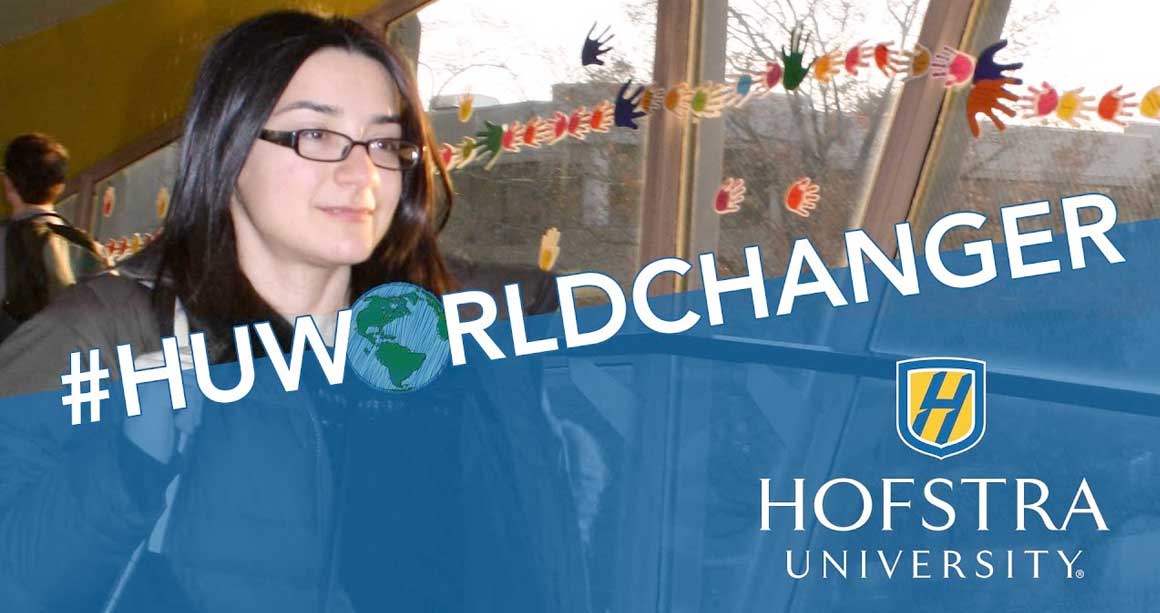The physical and applied sciences require a solid foundation in mathematics. Students pursuing a Bachelor of Science in Mathematics can tailor their degree to concentrate in chemistry, physics, engineering, or computer science. There is also a joint degree in computer science and mathematics.
You will learn from our distinguished faculty, many of whom have worked in science and technology. Their teaching expertise and real-world insights will ensure your success.
Career prospects for math majors vary, depending on the industry and your role. But in the New York region, graduates with a bachelor's degree in general mathematics earned an average annual salary of $76,416, and job growth for this major is projected to increase 8.2% by 2026, according to New York area labor market data retrieved in July 2018 by Burning Glass Technologies.
Hofstra views mathematics as a collaborative venture, not a solitary pursuit. Every faculty member works to develop students' abilities - to not only think mathematically about problems, but to become fluent and precise in expressing mathematical concepts.
Math students are also exposed to a broad range of current research and new ideas through a busy seminar program. Faculty, students, and guest lecturers discuss varied topics like: How Aliens Do Math, How Math Theory Can Help Break Up Terror Cells, Confessions of a Sequence Addict, The Many Lives of Lattice Theory, and What Mathematics Can Tell Us About Cancer.
Curriculum
Courses you take in pursuit of a BS in Mathematics with Science Applications are geared to careers and further studies in engineering, computer science, or the physical sciences. These programs also give you the flexibility to complete a double major in a specific scientific discipline. With the help of your advisor, you will choose from such mathematics courses as: Analytic Geometry and Calculus, Linear Algebra and Probability, and Statistics.
Up-to-date information about required classes and more is available in the Hofstra Bulletin.
You will also take classes offered by the Departments of Engineering, Chemistry, and Physics, receiving a thorough grounding in the essentials of your chosen field of study. Some of these courses might include: Fundamentals of Computer Science, Mechanics, Electricity and Magnetism, Foundations of Physical Chemistry, Computational Methods in Engineering, Engineering in Thermodynamics, or Designing the Human-Made World.
The major in Computer Science and Mathematics is offered jointly by both departments. It is the ideal program for students wishing to pursue computer-related careers that require strong mathematical skills.
All students complete a course in “Communicating Mathematics,” ensuring they can present mathematical information and research to a range of audiences.
Internships
The department promotes field experience, which is key for employment and when applying to graduate school. Students seeking positions as actuaries or other positions in business and industry find that internships offer real-world experiences beyond the classroom. Examples of places where math students have held internships are Amerasia Bank, Northwell Health, PNC Bank, Bitcoin Center NYC, Heritage Strategies LLC, and Mathnasium.

Those who plan to pursue advanced degrees in math and science often benefit from research experience, either working closely with our own faculty or traveling to REU (Research Experience for Undergraduates) programs at locales such as Missouri State, the College of William & Mary, Budapest, Hungary, and more. Recently, with faculty and institutional support, students traveled to academic conferences in Missouri, Colorado, Hawaii, Nebraska, California, and France.
When they are not in class, our students socialize in our department lounge and in the Math Tutoring Center. Many participate in the Actuarial Science Club and the Math Club, which plan off-campus excursions to the movies, to the National Museum of Mathematics, and to meetings with industry leaders in New York City. Some students may be invited to join Pi Mu Epsilon, the mathematics honor society, which can open doors in both education and industry.
Our students also are encouraged to take part in local and national mathematics competitions. These range from the department's Problem of the Month competition and annual SCUDEM (Student Competition Using Differential Equations Modeling) to Central Washington University's cipher-breaking Kryptos competition, and the William Lowell Putnam Mathematical Competition, the preeminent mathematics competition for undergraduate college students in the United States and Canada.
The Outlook
Students who graduate with a bachelor's degree in mathematics from Hofstra move quickly into employment or graduate school in a range of industries and institutions. These figures are the outcomes for all recent math majors. Those who enter scientific and engineering fields often earn more lucrative salaries and may find their skills in higher demand. Among the places where our graduates are working include: the U.S. Department of Energy Oak Ridge National Lab, Brookhaven National Laboratory, Zurich North America, American Advisors Group, Inc. and Zebra Technology.
Students with a BS degree and a concentration in a science also land spots in coveted masters and doctoral programs at these top schools:
- AEROSPACE ENGINEERING at Penn State
- ATMOSPHERIC SCIENCE at Rutgers University
- CHEMISTRY at The College of William and Mary
- ELECTRICAL ENGINEERING at Cornell University
- MATERIALS SCIENCE AND ENGINEERING at Stanford University
- MECHANICAL ENGINEERING AND MATERIALS at UC Santa Barbara
- NEUROSCIENCE at Stony Brook University
- PHYSICS at New York University
- ENGINEERING at Columbia University
*Outcomes data are for Mathematics majors. Get more information about outcomes for Computer Science and Mathematics majors.
In a survey of recent graduates from the School of Natural Sciences and Mathematics:
93%
job, grad school or both
89%
accepted a job within six months of graduation
$51K
mean salary*
Meet Stephanie Nagel
While working toward her degree in Computer Science and Mathematics, Stephanie Nagel combined academics, research and real-world experience to secure a bright future. She is currently working as a software developer and pursuing a master's at Columbia University.

